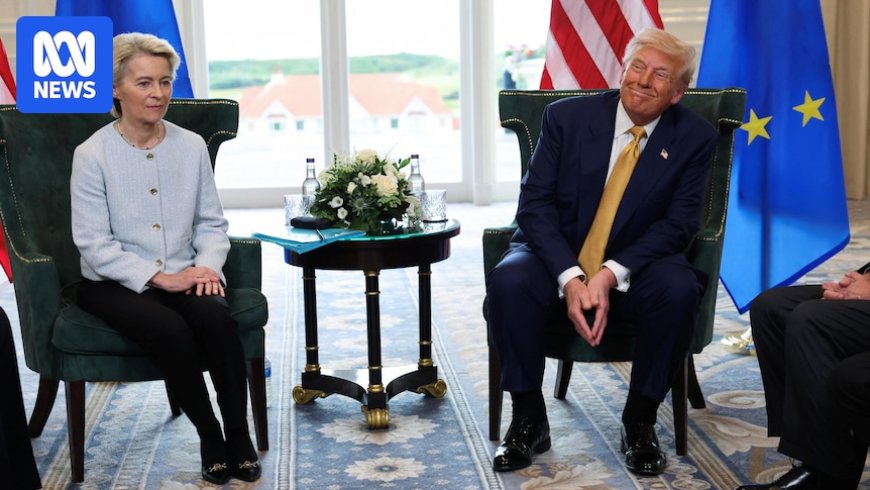European Leaders React to EU-US Trade Deal with Mixed Feelings
The European Union and the United States have reached a trade agreement, hailed as significant by Donald Trump. While some European leaders welcome the deal for its business benefits, others express concerns about potential negative impacts on key industries. The agreement has sparked a debate on the implications for transatlantic trade relations and the competitiveness of European businesses.

The European Union and the United States have struck a trade deal, described as the biggest ever made by Donald Trump. European Commission chief Ursula von der Leyen said the agreement, signed by her and the US president at his Trump Turnberry golf course in Scotland on Sunday, was important for our businesses on both sides of the Atlantic, and offered stability and predictability. However, it has drawn a decidedly mixed reaction from European leaders. Why do some countries welcome the announcement, while others don't? And what could the terms of the deal mean for Australia's hopes of avoiding Mr. Trump's tariffs? Here is what we know.
What is the EU-US deal? Almost all EU goods entering the US will be subject to a 15 per cent baseline tariff, including cars, semiconductors, and pharmaceuticals. The US and EU will also have zero-for-zero tariffs on certain products. Meanwhile, the EU has agreed to buy $US750 billion worth of US energy over the next three years and invest $US600 billion more in America, as well as make a major purchase of military equipment. Who welcomes the deal and who doesn't?
Who welcomes the deal and who doesn't? German Chancellor Friedrich Merz welcomed the trade deal, while Spanish Prime Minister Pedro Sanchez backed it without enthusiasm. Irish Prime Minister Micheál Martin expressed mixed feelings. French Prime Minister Francois Bayrou criticized the deal.
Why are some European leaders unhappy? Many leaders voiced frustration because the deal leaves the EU worse off than before Mr. Trump's tariffs were imposed. The deal is seen as less favorable compared to the UK, impacting car makers and other key industries in Europe.
What happens next? The EU-US trade deal wasn't as bad as feared, but uncertainty remains. The agreed-upon tariffs leave major European manufacturers vulnerable. The deal could cause political ramifications and it will take time for the details to become clear.
What about Australia? The Trump administration has expressed grievances with Australia's Pharmaceutical Benefits Scheme and laws on US technology giants. The contrast between the EU deal and the UK-US deal highlights the importance of fostering strong diplomatic relations with Mr. Trump. Australia may see an increase in tariffs from 10 to 15 per cent. It will be interesting to see how major economies divert trade in the coming years. To reduce tariffs, fostering a good relationship with Mr. Trump is crucial.
According to the source: Australian Broadcasting Corporation.
What's Your Reaction?
 Like
0
Like
0
 Dislike
0
Dislike
0
 Love
0
Love
0
 Funny
0
Funny
0
 Angry
0
Angry
0
 Sad
0
Sad
0
 Wow
0
Wow
0

























































































































































































